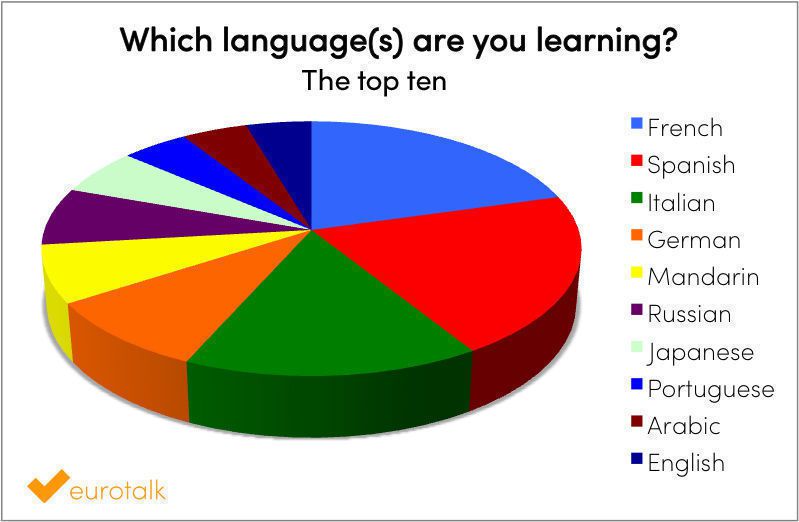Why I’m learning Icelandic in January
When Liz asked us if we’d be interested in signing up for her January challenge to learn a language with uTalk, I immediately knew which language I was going to pick: Icelandic. Then she asked me why and I struggled: I don’t have a good reason. I have never been to Iceland, I don’t have any Icelandic friends and, realistically, I’m unlikely to need to speak Icelandic in the near (or even distant) future.
And yet I am incredibly excited about the prospect of cramming as much Icelandic as possible into my mince-pie stuffed head in January, and trying to beat all my colleagues in the challenge. Ever since recording uTalk Icelandic with our genuinely lovely and professional voice artists Saga and Smarri, I have wanted to know more about the language and culture of this beautiful country of Northern lights, roaming wales and unfailingly excellent Eurovision entries.
I’m also a bit of a fan of the Nordic sagas and the idea of being able to vaguely decipher the genuine article with some of my newly acquired Icelandic really appeals. That’s probably a bit ambitious for January, but it never hurts to have a long-term goal, and I’m hoping that the uTalk challenge will start me off on a serious 2015 language quest.
Who else is going to join us?
Nat
Are you a language geek?
We’re proud to be language geeks here at EuroTalk, but we know we’re not the only ones! Here’s your opportunity to show us what you know… Can you get 100%? And more importantly, can you beat your friends? 😉
(By the way, if you want to cheat on any of the questions, the words we’ve used in the quiz are in our uTalk app – now available in 100 languages on iPad, iPhone and iPod touch.)
Which language are you learning? The results!
We had a great response to our recent language learning survey; thank you to everyone who took the time to complete it. First things first: we’re delighted to announce that the winner of the iPad mini prize draw is Konstantia Sakellariou. Congratulations, Konstantia – your iPad is on its way!
We wanted also to share a few of our findings with you. Some of the results from the survey were as we expected, others were quite surprising. Here are just a few of the things you had to tell us. Thanks again for all your thoughtful responses, we’ll put them to good use.
Which language(s) are you learning (or would like to learn)?
The first question was pretty straightforward. A couple of people ticked every language on offer (over 100) – now that’s what we call ambition! – but most chose between 1 and 5. Here are the top ten most popular languages:  Other popular choices included Greek, Swedish, Dutch, Brazilian Portuguese, Norwegian, Irish, Polish and Icelandic. We also got some requests for languages we don’t yet offer, like Guernésiais and Twi – we’ll do our best to add those languages to our list, so watch this space!
Other popular choices included Greek, Swedish, Dutch, Brazilian Portuguese, Norwegian, Irish, Polish and Icelandic. We also got some requests for languages we don’t yet offer, like Guernésiais and Twi – we’ll do our best to add those languages to our list, so watch this space!
Why are you learning a language?
Next, we wanted to know why you’re learning a language. Nearly half of the respondents chose travel as a reason, and almost as many said they were learning a language just for fun. 36% of respondents said it was for family reasons or for a relationship, and 27% for work. The results were quite evenly split though, showing that there’s no one overwhelming reason – everyone has their own motivation.  Among the other reasons, we had a range of answers, including an interest in the culture of the language, personal challenge and wanting to follow literature, film and music in other languages. Many people are living in another country, which was their main motivation for learning the local language. And one person said that their heart asked for the knowledge, which we loved 🙂
Among the other reasons, we had a range of answers, including an interest in the culture of the language, personal challenge and wanting to follow literature, film and music in other languages. Many people are living in another country, which was their main motivation for learning the local language. And one person said that their heart asked for the knowledge, which we loved 🙂
What prevents you from learning a language?
We were also interested to know what stops people from learning a language, so we asked you to rate the following reasons out of 5. The most common barrier to learning is a lack of time, followed by not having found the right method, and then the cost involved.  Incidentally, if you’re facing any of these barriers, you may like to check out our recent posts, on finding time to learn a language and learning on a budget. And if you’re looking for resources, did you know you can try out the EuroTalk learning method for free? Either visit our website, or download our free app, uTalk for iOS, to give it a go. We believe learning a language should be fun, because our research shows we learn much better if we’re enjoying ourselves, and this in turn makes it a lot easier to overcome the obstacles that get in the way. See what you think! Other answers included not having an opportunity to use the language, a lack of motivation and difficulty finding resources for the particular language they wanted to learn (we may be able to help there – we’ve got 136 languages and counting…).
Incidentally, if you’re facing any of these barriers, you may like to check out our recent posts, on finding time to learn a language and learning on a budget. And if you’re looking for resources, did you know you can try out the EuroTalk learning method for free? Either visit our website, or download our free app, uTalk for iOS, to give it a go. We believe learning a language should be fun, because our research shows we learn much better if we’re enjoying ourselves, and this in turn makes it a lot easier to overcome the obstacles that get in the way. See what you think! Other answers included not having an opportunity to use the language, a lack of motivation and difficulty finding resources for the particular language they wanted to learn (we may be able to help there – we’ve got 136 languages and counting…).
How have you used your language when travelling?
Finally, we asked how knowing another language has been useful when you’re travelling. There was no clear winner here, which just goes to show knowing a language is always useful! But the top response was that it gives you the ability to talk to locals in their own language; many people added that they felt more welcome as a result and that it gave them independence so they could make the most of their trip. There were lots of practical reasons too, with getting around and eating out narrowly beating shopping in the poll. If you missed out on the survey this time, don’t worry – we’re planning another one soon, so keep an eye on the blog (you can subscribe by email above to get the latest updates), or follow us on Facebook or Twitter. And if you didn’t answer this survey but would still like to have your say on any of the questions, you’re very welcome to email us or add your thoughts in the comments below.
If you missed out on the survey this time, don’t worry – we’re planning another one soon, so keep an eye on the blog (you can subscribe by email above to get the latest updates), or follow us on Facebook or Twitter. And if you didn’t answer this survey but would still like to have your say on any of the questions, you’re very welcome to email us or add your thoughts in the comments below.
Liz
Data above based on 877 survey responses.
8 bizarre superstitions from around the world
This month, we’ve been having a look at interesting superstitions from different countries. There are literally thousands of examples – here are just a few. We suggest they should be taken with a pinch of salt…
If you’re in Malta, don’t rely on the church clock to tell you the right time. Churches are sometimes fitted with two clocks that tell different times to confuse the Devil about the time of the service.
Approach toilets with caution in Morocco – there might be a genie living in the u-bend… They don’t give wishes and they certainly don’t like to be disturbed. If you need to go, just say the words ‘Rukhsa, ya Mubariqin’ (With your permission, O Blessed Ones). Also beware of going to the toilet at night, where you might run into a beast called ‘Maezt Dar L’Oudou’, the ‘Goat of the Lavatories’.
If you’re visiting Britain, you’ll probably find you need an umbrella with depressing regularity. But whatever you do, don’t open it till you get outdoors; it’s very bad luck to open your umbrella inside.
Elves are alive and well in Iceland. In a 2006 survey only 35% of Icelanders said that they thought the existence of elves was either impossible or very unlikely and local elves still take an active role in shaping modern Iceland: roads and building projects sometimes have to be changed to avoid destroying known elf homes.
In Japan, if you walk by a graveyard or a hearse passes you, you must tuck your thumbs inside your fists. This is because the Japanese word for thumb (‘oya yubi’) literally translates as ‘parent-finger’ and so by hiding them you protect your parents from death.
Ready to go? Have a seat. In Russia, if you’re going on a journey you have to sit down for a minute just before leaving the house, to reflect on the coming trip and make sure you’ve got everything you need. It’s also bad luck to say goodbyes over the threshold, so you should always say your farewells before you leave.
If you find yourself in Spain on New Year’s Eve, don’t be surprised if, when the clock strikes midnight, you notice everyone around you eating grapes. This has been a tradition since the early 20th century; eating one grape for each bell strike is believed to bring twelve months of good luck.
And finally, when in China, never leave rice on your plate at the end of a meal – for each grain left at the end of a meal, your future husband or wife will have that many pockmarks on their face.
We’d love to hear any more examples, so please do share them in the comments below. And good luck out there…
It’s Raining Cats and Dogs (and Wheelbarrows and Old Ladies)
‘It’s raining cats and dogs!’ is a common British phrase meaning that it’s raining particularly hard. There are various theories as to where the expression came from – although there’s no evidence that it’s ever actually happened!
It may come from the Greek expression cata doxa. This means ‘contrary to experience or belief’ and might explain why the expression is used when it’s raining unusually hard.
Equally, it could be derived from the old French word catadupe, which meant waterfall.
An old theory was that in heavy rain, dead animals would often be washed out of drainage systems on 17th century buildings in Europe.
There’s no conclusive answer. It may just be that it was a funny expression that caught on and became popular. We’ll probably never know…
In Britain it also rains buckets, stair rods, tacks and pitchforks… But did you know that in other areas of the world, it rains other things?
Our favourites are:
‘It’s raining wheelbarrows’
Czech: Padají trakaře
‘It’s raining knives and forks’
Welsh: Mae hi’n bwrw cyllyll a ffyrc
‘It’s raining shoemakers’ apprentices’
Danish: Det regner skomagerdrenge
‘It’s raining fire and brimstone’
Icelandic: Það rignir eld og brennustein

‘It’s raining lady trolls’
Norwegian: Det regner trollkjerringer
‘It’s raining husbands’
Spanish: Están lloviendo maridos
‘It’s raining old women with knobkerries’
Afrikaans: Ou vrouens met knopkieries reen (by the way, a knobkierrie is a kind of African club!)
‘It’s raining snakes and lizards’
Brazilian Portuguese: Chovem cobras e lagartos
‘It’s raining frogs’
Polish: Leje zabami
We’d love to know where some of these expressions came from, so if anyone has any information, please share it in the comments!



